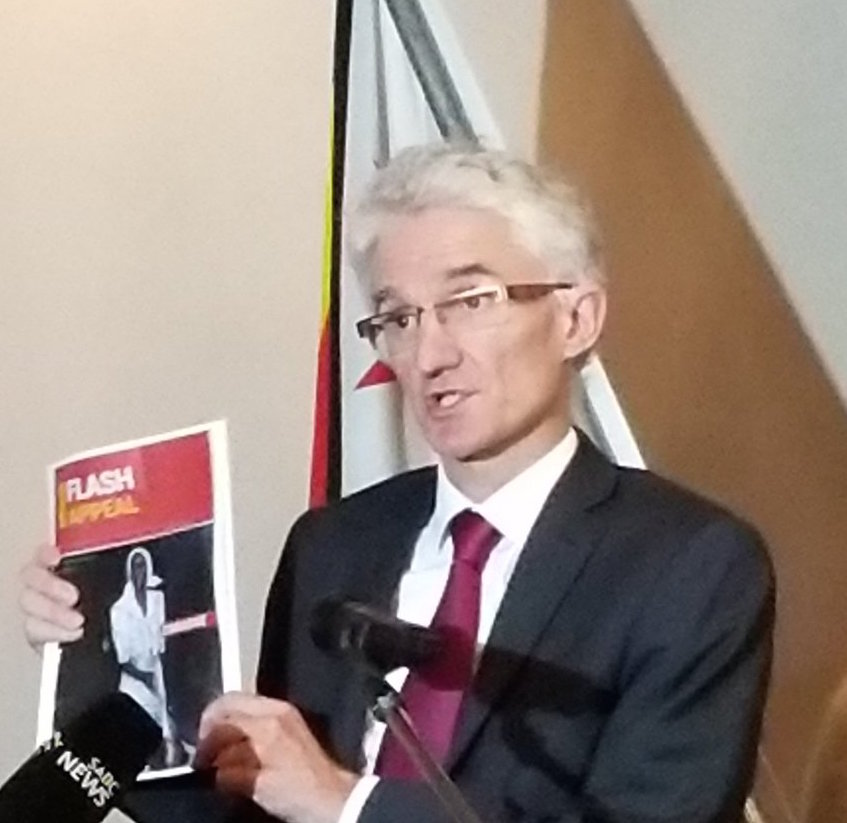By Lovemore Chazingwa (News Correspondent)
Communities vulnerable to natural disasters need be geared for preparedness and response in order to mitigate the effects of such calamities, an expert in disaster management has said.
Responding to questions on the sidelines of a recent workshop on water, sanitation and hygiene (WASH) organised by international non-governmental (NGO) Aqua-Plus Disaster Management (APDM) for Zimbabwe United Nations Association (ZUNA), Engineer Rahul Pathak said preparedness and response measures are prerequisites in disaster management.
“Considering the high risk of southern Africa to natural disasters because of climate change, we need to ensure our communities are well prepared for response to them. Risk reduction has to be prioritised at any cost,” said Eng. Pathak.
Malawi Mozambique and Zimbabwe were overwhelmed by Cyclone Idai mid March leaving a heavy trail of destruction and loss of human, wild and livestock lives with others injured in magnitudes that have surpassed the region’s history.
According to the Central Emergency Response Fund, US$20 million was allocated to the three countries to help kickstart response, in a decision that was immediately taken by UN Under-Secretary General for Humanitarian Affairs, Mark Lowcock.
Before and after Cyclone Idai ravaged Bikita, Chimanimani, Chipinge and parts of Chirumanzu convincing efforts on disaster preparedness and response were thin.
“All these people were living in risk until the cyclone struck. We need to make them more prepared and better equipped to cope with such situations, ” added Eng Pathak.
The vastly travelled Eng. proffered solutions to potential and impending disasters: “There is need to create awareness in communities, training them so that they respond to disasters in the best way possible.”
Participants at the workshop were taken through disaster preparedness and response modules for implementation.
The water and sanitation expert highlighted on how his organisation lends sustainable support to governments and other community players,”We support the government in providing sustainable material, technical support solutions which can be used in emergency response to WASH.
“We’ve four filtration kits that produce safe and good chlorinated water for 550 families.
“In addition, affected communities have received 55 000 chlorine tablets and 10 cholera water satchets as well as soap with trichlorozane for mopping floors, all this to ensure their safety.”
APDM has in mind a strategy to make ZUNA a training institute for the whole of Africa.
UN Secretary General Antonio Guterres added his voice to calls for more assistance and revival of livelihoods and infrastructure in Cyclone hit areas.
“Let me underscore that Cyclone Idai was an uncommonly fierce and prolonged storm, yet another alarm bell about the dangers of climate change, especially in vulnerable at-risk countries.
“Such events are becoming more frequent, more severe and devastating and more widespread, and this will only get worse if we do not act now,” said the UN Chief in a media communique toward end of March.
There is a wide gap in information empowerment among government agencies and the donor community for people who may be prone to disasters.
Zimbabwe had to grapple with Tugwi- Mukosi disaster about a decade ago and it seems less information awareness has filtered communities.
In the wake of Cyclone Idai most efforts are on life saving and material assistance as opposed to proactive preparedness and response on the part of citizens.
This state of affairs renders disaster preparedness and response an arduous task when the worst happens.
Due to lack of such vital information some people did not take heed of meteorological department and civil protection unit (CPU) warnings leading to casualties.
APDM has made strides in bridging that gap not only in Zimbabwe but other countries like Afghanistan, Bangladesh, Ethiopia and India. There were fears that Cyclone Kenneth coming hard on the heels of Idai would match his predecessor. Mozambique was not spared again.
APDM training modules include but are not restricted to Disaster management, Needs assessment, Shelter and settlements, Food and nutrition, Essentials of humanitarian emergencies and Participatory hygiene and health.
The UN SG communiqué revealed that the death toll was at least 700 people with hundreds missing. The devastation had affected 3 million people with two thirds of them in Mozambique. At least a million children need assistance. A staggering US$1 billon worth of infrastructure destroyed. At the time 100 000 mouths had been reached with food aid while expecting to feed many more. A US$281.7 million scale-up emergency, the most severe, was launched as at March 31.ZUNA is an organisation for the UN and member of the World Federation UN Associations (WFUNA).
It involves the grassroots on UN topical issues. Its umbrella program is promoting sustainable development through awareness and advocacy initiatives on gender equality, health, climate change and peace building. It operates under the three UN pillars, that is , human rights, peace and security and, SDG.
ZUNA focuses on all aspects of SDGs but currently more efforts are pooled towards those mentioned above.






